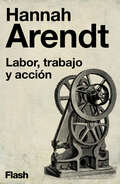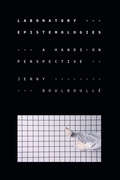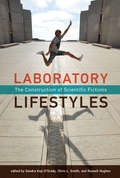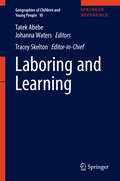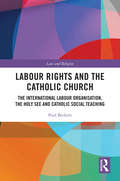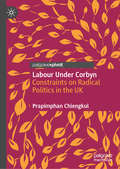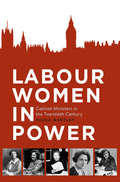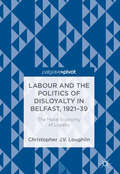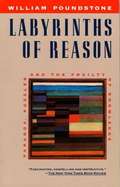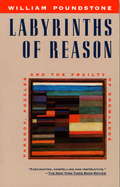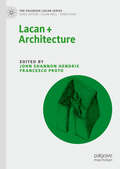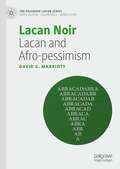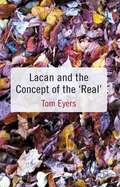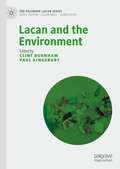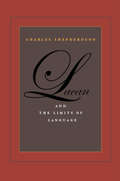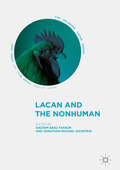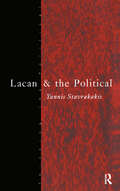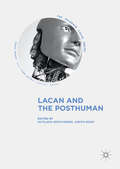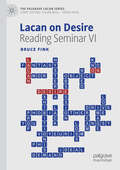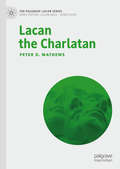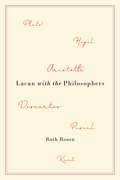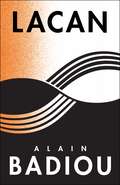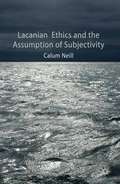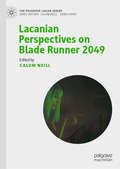- Table View
- List View
Labor, trabajo y acción
by Hannah ArendtFlash publica uno de los textos más representativos del pensamiento de Hannah Arendt. Un ensayo que reinterpreta los conceptos de labor, trabajo y acción en su relación con el ser humano a lo largo de la historia de la humanidad. «Es el momento de aprovechar esta oportunidad para pensar en lo que es un trabajo valioso de verdad». Enrique Zamorano, El Confidencial En este texto, recogido en La pluralidad del mundo, Hannah Arendt reflexiona sobre el significado del trabajo y su relación con el ser humano a lo largo del tiempo. La filósofa toma como base el concepto de vida activa y cómo en esta se desarrollan los tres medios (labor, trabajo y acción) con los que alcanzar el «ideal» al que los griegos aspiraban desde la era pre-filosófica: una vida contemplativa, aquella que les podría otorgar calma, paz interior y claridad de pensamiento. No obstante, Arendt da un paso más allá y trata de desmontar esa jerarquía donde prevaleció durante siglos la contemplación y la calma. ¿Y si la vida activa fuera inherente al ser humano? ¿Y si estamos predestinados a la actividad para mantenernos vivos? ¿No deberíamos resignificar nuestros valores? Con estas preguntas, Arendt examina los tres conceptos que ponen en el centro al ser humano y su relación con el entorno: la labor, como una actividad rutinaria y necesaria para la supervivencia del individuo; el trabajo, como el esfuerzo que produce un mundo con objetos sólidos y perdurables, que sobreviven a la finitud de los organismos vivos; la acción, intrínseca a los seres humanos desde que nacemos, porque estamos condenados a relacionarnos y nuestros actos tienen causas y consecuencias infinitas. A través del estudio y la separación de estas tres ideas, Arendt pone en valor la vida activa para comprender que no se puede prescindir de ella en pro de la contemplación, puesto que reivindicar la labor, el trabajo y la acción es reivindicar nuestra propia libertad como individuos en el mundo. Sobre La pluralidad del mundo: «Hoy, como entonces, el vocabulario que empleó Arendt para pensar y narrar el mundo, sus reflexiones y esa escritura tan bella, tan suya, nos ayudan a interpretar lo que nos ocurre, aunque solo sea como simples enanos mirando el mundo a hombros de gigantes. Ella, desde luego, lo fue.»Máriam Martínez-Bascuñán, Babelia, El País «Hannah Arendt volvió a pensar el espacio público después de su destrucción y nosotros debemos volver a ella para prevenir que se destruya de nuevo.»Andreu Jaume «Judía y alemana, Hannah Arendt reflexiona sobre la ascensión del nazismo y la ceguera de no haber visto a tiempo su peligro.»César Antonio Molina, ABC Sobre La libertad de ser libres: «Este ensayo recién redescubierto es como una petición de compromiso político en la era de Trump.»Die Zeit «Pese a haber sido escrito hace cincuenta años, es tan moderno que parece pensado para la actualidad política mundial.»Westdeutscher Rundfunk «Un ensayo inspirador de una relevancia extraordinaria, especialmente en tiempos en que se cuestionan los valores liberales del orden democrático.»Philosophie Sobre Eichmann en Jerusalén: «Es historia, es pensamiento y es advertencia -aún hoy- sobre las consecuencias de la banalidad del mal, de la que a pesar de lo vivido, no estamos vacunados.»Laura Barrachina, RNE «Un ensayo imprescindible. Arendt no se olvida de nadie.»Marta Michel, El Mundo - Yo Dona «En vez de defender la causa de su pueblo de manera incondicional, Arendt se puso a reflexionar, investigar y debatir. En palabras de Aristóte
Laboratory Epistemologies: A Hands-On Perspective (Experimental Futures)
by Jenny BoulboulléIn Laboratory Epistemologies: A Hands-On Perspective, Jenny Boulboullé examines the significance of hands-on experiences in contemporary life sciences laboratories. Addressing the relationship between contemplation and manipulation in epistemology, Boulboullé combines participant observations in molecular genetics labs and microbiological cleanrooms with a longue durée study of the history and philosophy of science. She radically rereads Descartes’s key epistemological text Meditations on First Philosophy, reframing the philosopher as a hands-on knowledge maker. With this reading, Boulboullé subverts the pervasive modern conception of the disembodied knower and puts the hands-on experimenter at the heart of life sciences research. In so doing, she contributes a theoretical model for understanding how life processes on cellular and molecular levels are manually produced in today’s techno-scientific spaces. By reassessing the Cartesian legacy and arguing that epistemology should be grounded in the standpoint of a hands-on practitioner, Boulboullé offers the philosophical and historical foundation to understand and study contemporary life sciences research as multisensory embodied practices.
Laboratory Lifestyles: The Construction of Scientific Fictions (Leonardo)
by Chris Smith Russell Hughes Sandra Kaji-O'GradyA generously illustrated examination of the boom in luxurious, resort-style scientific laboratories and how this affects scientists' work. The past decade has seen an extraordinary laboratory-building boom. This new crop of laboratories features spectacular architecture and resort-like amenities. The buildings sprawl luxuriously on verdant campuses or sit sleekly in expensive urban neighborhoods. Designed to attract venture capital, generous philanthropy, and star scientists, these laboratories are meant to create the ideal conditions for scientific discovery. Yet there is little empirical evidence that shows if they do. Laboratory Lifestyles examines this new species of scientific laboratory from architectural, economic, social, and scientific perspectives. Generously illustrated with photographs of laboratories and scientists at work in them, the book investigates how “lifestyle science” affects actual science. Are scientists working when they stretch in a yoga class, play volleyball in the company tournament, chat in an on-site café, or show off their facilities to visiting pharmaceutical executives?The book describes, among other things, the role of beanbag chairs in the construction of science at Xerox PARC; the Southern California vibe of the RAND Corporation (Malibu), General Atomic (La Jolla), and Hughes Research Laboratories (Malibu); and Biosphere 2's “bionauts” as both scientists and scientific subjects; and interstellar laboratories. Laboratory Lifestyles (the title is an allusion to Bruno Latour and Steve Woolgar's influential Laboratory Life) documents a shift in what constitutes scientific practice; these laboratories and their lifestyles are as experimental as the science they cultivate. Contributors Kathleen Brandt, Russell Hughes, Tim Ivison, Sandra Kaji-O'Grady, Stuart W. Leslie, Brian Lonsway, Sean O'Halloran, Simon Sadler, Chris L. Smith, Nicole Sully, Ksenia Tatarchenko, William Taylor, Julia Tcharfas, Albena Yaneva, Stelios Zavos
Laboring and Learning
by Johanna Waters Tatek AbebeThis volume incorporates ground-breaking new academic perspectives on the contributions that children and young people make to societies around the world, with a particular focus on learning and work. The chapters in the volume offer conceptual and empirical insights into how young people learn to labour, and the complex social, spatial, temporal, institutional and relational processes that informs their engagements in daily, generational and social reproduction. The editors have intentionally avoided using the terms 'education' and 'employment' in the title, as this volume is an attempt to capture the multitude of ways, spaces and contexts (not just 'formal') in which learning takes place and work is carried out. Here, learning indicates education in the broadest possible sense, to incorporate not just formal schooling and the acquisition of institutionally recognised academic knowledge and credentials, but also informal learning (including socialization and the on-the-job acquisition of skills that takes place almost imperceptibly, over time). In addition to the theoretical perspectives this volume brings on young people's education and work, other prominent conceptual themes present throughout the work are mobilities, transitions and gender. Following four initial chapters that engage with conceptual issues, the remainder of the volume is divided into two sections, entitled 'spaces of labouring and learning' and 'livelihoods, transitions and social reproduction'. Within these sections, a broad spectrum of empirical chapters demonstrates how young people live, learn and labour in Africa, Asia, Europe and Latin America. These include, among others, geographies of education; interface between migration, learning and livelihoods; cultural politics of human capital formation; schooling and work; citizenship education; families and parenting; socialization and informal education; education-induced migration; processes and practices of inclusion and exclusion in educational institutions; part-time work; domestic work; care work; informal livelihoods; entrepreneurship; social transitions; and a wide range of social, economic, cultural, political (structural) forces that intersect and dissect these topics. As the reader will become aware, there is no such thing as a standard educational or work trajectory, a 'normal' transition or a straight forward relationship between work, education and social reproduction. Indeed, one of the aims of the volume is deliberately to showcase the diversity that young people's lives hold in this regard.
Labour Rights and the Catholic Church: The International Labour Organisation, the Holy See and Catholic Social Teaching (Law and Religion)
by Paul BeckettThis book explores the extent of parallelism and cross-influence between Catholic Social Teaching and the work of the world’s oldest human rights institution, the International Labour Organisation (ILO). Sometimes there is a mutual attraction between seeming opposites who in fact share a common goal. This book is about just such an attraction between a secular organisation born of the political desire for peace and justice, and a metaphysical institution much older founded to bring peace and justice on earth. It examines the principles evident in the teachings of the Catholic Church and in the secular philosophy of the ILO; together with the theological basis of the relevant provisions of Catholic Social Teaching and of the socio-political origins and basis of the ILO. The spectrum of labour rights covered in the book extends from the right to press for rights, i.e., collective bargaining, to rights themselves – conditions in work – and on to post-employment rights in the form of social security and pensions. The extent of the parallelism and cross-influence is reviewed from the issue of the Papal Encyclical of Pope Leo XIII Rerum Novarum (1891) and from the founding of the ILO in 1919. This book is intended to appeal to lay, professional and academic alike, and will be of interest to researchers and academics working in the areas of international human rights, theology, comparative philosophy, history and social and political studies. On 4 January 2021 it was granted an Imprimatur by the Roman Catholic Archbishop of Liverpool, Malcolm P. McMahon O.P., meaning that the Catholic Church is satisfied that the book is free of doctrinal or moral error.
Labour Under Corbyn: Constraints on Radical Politics in the UK
by Prapimphan ChiengkulThis book provides an accessible yet critical analysis of the Labour Party under the leadership of Jeremy Corbyn (2015-2020) in the context of the contemporary British political economy. It analyses structural constraints on left-wing politics and evaluates the transformative potential of Labour’s economic and social policies under Corbyn. Drawing from a neo-Marxist and neo-Gramscian framework, the book argues that the material, institutional and ideological conditions before 2015 opened political space for a left-wing Labour Party, although the dominant historical structures severely limited its chance of coming to power. In addition, the book argues that Labour under Corbyn should not be dismissed as ‘populist’, and that its policies aimed to redress structural economic problems, promote economic democracy and tackle contemporary challenges. The book also highlights the importance of adopting a long-term approach to counter-hegemonic political struggle so as not to shrink the space for progressive politics.
Labour Women in Power: Cabinet Ministers in the Twentieth Century
by Paula BartleyThis book examines the political lives and contributions of Margaret Bondfield, Ellen Wilkinson, Barbara Castle, Judith Hart and Shirley Williams, the only five women to achieve Cabinet rank in a Labour Government from the party’s creation until Blair became Prime Minister. Paula Bartley brings together newly discovered archival material and published work to provide a survey of these women, all of whom managed to make a mark out of all proportion to their numbers. Charting their ideas, characters, and formative influences, Bartley provides an account of their rise to power, analysing their contribution to policy making, and assessing their significance and reputation. She shows that these women were not a homogeneous group, but came from diverse family backgrounds, entered politics in their own discrete way, and rose to power at different times. Some were more successful than others, but despite their diversity these women shared one thing in common: they all functioned in a male world.
Labour and the Politics of Disloyalty in Belfast, 1921-39: The Moral Economy of Loyalty
by Christopher J. V. LoughlinThis book provides the first ‘history from below’ of the inter-war Belfast labour movement. It is a social history of the politics of Belfast labour and applies methodology from history, sociology and political science. Christopher J. V. Loughlin questions previous narratives that asserted the centrality of religion and sectarian conflict in the establishment of Northern Ireland. Labour and the Politics of Disloyalty in Belfast, 1921-39 suggests that political division and violence were key to the foundation and maintenance of the democratic ancien régime in Northern Ireland. It examines the relationship between Belfast Labour, sectarianism, electoral politics, security and industrial relations policy, and women’s politics in the city.
Labyrinths of Language: Philosophical and Cultural Investigations
by Franson ManjaliThirteen essays in the book explore and investigate diverse contemporary philosophically current themes and issues. The title is derived from Wittgenstein's statement that 'anguage is a labyrinth of paths,' and it studiously avoids any conclusive claim on its central motif. What people, both users and theorists, do with language, rather than what it is, is the running theme. The book critically presents the views of a wide range of philosophically and analytically oriented authors including, de Saussure, Levinas, Lévi-Strauss, Wittgenstein, Derrida, Bakhtin, Benjamin, Kafka, Heidegger, Blanchot, Jean-Luc Nancy, Barthes and Deleuze. Only two essays diverge from the main concern with language: the one on the discourse of death, and another on the philosophy of image. One essay involves an analysis of the cultural and political discourse in a contemporary Malayalam novel. The concluding essay attempts to develop a postcolonial field of language studies, with reference to the works of the 18th century British jurist and linguist Sir William Jones and the subsequent philological tradition, whose political consequences are only beginning to be understood.
Labyrinths of Reason: Paradox, Puzzles, and the Frailty of Knowledge
by William PoundstoneThis sharply intelligent book takes the reader on an astonishing, thought-provoking voyage into the realm of delightful uncertainty--a world of paradox in which logical argument leads to contradiction, and common sense is seemingly rendered irrelevant.
Labyrinths of Reason: Paradox, Puzzles, and the Frailty of Knowledge
by William PoundstoneThis sharply intelligent, consistently provocative book takes the reader on an astonishing, thought-provoking voyage into the realm of delightful uncertainty--a world of paradox in which logical argument leads to contradiction and common sense is seemingly rendered irrelevant. (From the Trade Paperback edition.)
Lacan + Architecture (The Palgrave Lacan Series)
by John Shannon Hendrix Francesco ProtoThis book seeks to revise and revive architectural theory through psychoanalysis as well as to apply psychoanalytic theory to architecture. Its authors argue for Lacan’s central importance for a comprehensive theory of building and suggest how architectural theory might offer new resources for psychoanalytic theorists. They address both the perceived crisis in the contemporary state of architecture and architectural theory and crises in society at large, including political and economic fracture and instability and threats to mental health and well-being. It offers fresh insights to architects, architectural educators and practitioners, scholars of psychoanalysis, and anyone interested in the human condition in relation to the built environment.
Lacan Noir: Lacan and Afro-pessimism (The Palgrave Lacan Series)
by David S MarriottThis book explores how Jacques Lacan has influenced Black Studies from the 1950s to the present day, and in turn how a Black Studies framework challenges the topographies of Lacanianism in its understanding of race. David Marriott examines how a contemporary Black Studies perspective might respond to the psychoanalysis of race by taking advantage of the recent revitalization of Lacanianism in its speculative, metaphysical form. While the philosophical side of the debate makes a plea for a new universalism, this book proposes a Lacanian reassessment of the notion of race, a notion distinct from culture, language, religion, and identity. It argues that it is possible to re-establish the theoretical relation between capitalism, anti-blackness, and colonialism, by reassessing the links between Lacanian psychoanalysis and three main domains of black inquiry: mastery, knowledge, and embodiment. The book offers a strikingly original rereading of the place of Lacan in both Fanon Studies and Afro-pessimism. It will appeal to students and scholars of Black Studies, Cultural Studies, Critical Theory and Philosophy.
Lacan and the Concept of the ‘Real’: Charities, Civil Society And The Voluntary Sector Since 1945
by Tom EyersThis is the first book in English to explore in detail the genesis and consequences of Lacan's concept of the 'Real', providing readers with an invaluable key to one of the most influential ideas of modern times.
Lacan and the Environment (The Palgrave Lacan Series)
by Clint Burnham Paul KingsburyIn this exciting new collection, leading and emerging Lacanian scholars seek to understand what psychoanalysis brings to debates about the environment and the climate crisis. They argue that we cannot understand climate change and all of its multifarious ramifications without first understanding how our terrifying proximity to the real undergirds our relation to the environment, how we mistake lack for loss and mourning for melancholy, and how we seek to destroy the same world we seek to protect. The book traces Lacan’s contribution through a consideration of topics including doomsday preppers, forest suicides, Indigenous resistance, post-apocalyptic films, the mathematics of climate science, and the relevance of Kant. They ask: What can you do if your neighbour is a climate change denier? What would Bartleby do? Does the animal desire? Who is cleaning up all the garbage on the internet? Why is the sudden greening of the planet under COVID-19 no help whatsoever? It offers a timely intervention into Lacanian theory, environmental studies, geography, philosophy, and literary studies that illustrates the relevance of psychoanalysis to current social and environmental concerns.
Lacan and the Limits of Language
by Charles ShepherdsonThis book weaves together three themes at the intersection of Jacques Lacan and the philosophical tradition. The first is the question of time and memory. How do these problems call for a revision of Lacan’s purported “ahistoricism,” and how does the temporality of the subject in Lacan intersect with the questions of temporality initiated by Heidegger and then developed by contemporary French philosophy? The second question concerns the status of the body in Lacanian theory, especially in connection with emotion and affect, which Lacanian theory is commonly thought to ignore, but which the concept of jouissance was developed to address. Finally, it aims to explore, beyond the strict limits of Lacanian theory, possible points of intersection between psychoanalysis and other domains, including questions of race, biology, and evolutionary theory. By stressing the question of affect, the book shows how Lacan’s position cannot be reduced to the structuralist models he nevertheless draws upon, and thus how the problem of the body may be understood as a formation that marks the limits of language. Exploring the anthropological category of “race” within a broadly evolutionary perspective, it shows how Lacan’s elaboration of the “imaginary” and the “symbolic” might allow us to explain human physiological diversity without reducing it to a cultural or linguistic construction or allowing “race” to remain as a traditional biological category. Here again the questions of history and temporality are paramount, and open the possibility for a genuine dialogue between psychoanalysis and biology. Finally, the book engages literary texts. Antigone, Ovid’s Metamorphoses, Hamlet, and even Wordsworth become the muses who oblige psychoanalysis and philosophy to listen once again to the provocations of poetry, which always disrupts our familiar notions of time and memory, of history and bodily or affective experience, and of subjectivity itself.
Lacan and the Nonhuman
by Gautam Basu Thakur Jonathan Michael DicksteinThis book initiates the discussion between psychoanalysis and recent humanist and social scientific interest in a fundamental contemporary topic - the nonhuman. The authors question where we situate the subject (as distinct from the human) in current critical investigations of a nonanthropoentric universe. In doing so they unravel a less-than-human theory of the subject; explore implications of Lacanian teachings in relation to the environment, freedom, and biopolitics; and investigate the subjective enjoyments of and anxieties over nonhumans in literature, film, and digital media. This innovative volume fills a valuable gap in the literature, extending investigations into an important and topical strand of the social sciences for both analytic and pedagogical purposes.
Lacan and the Political (Thinking the Political)
by Yannis StavrakakisThe work of Jacques Lacan is second only to Freud in its impact on psychoanalysis. Yannis Stavrakakis clearly examines Lacan's challenging views on time, history, language, alterity, desire and sexuality from a political standpoint. It is the first book to provide an overview of the social and political implications of Lacan's work as a whole for students coming to Lacan for the first time.The first part of Lacan and the Political offers a straightforward and systematic assessment of the importance of Lacan's categories and theoretical constructions for concrete political analysis. The second half of the book applies Lacanian theory to specific examples of widely discussed political issues, such as Green ideology, the question of democracy and the hegemony of advertising in contemporary culture.
Lacan and the Posthuman (The\palgrave Lacan Ser.)
by Svitlana Matviyenko Judith RoofWhen Posthumanism displaces the traditional human subject, what does psychoanalysis add to contemporary conversations about subject/object relations, systems, perspectives, and values? This book discusses whether Posthumanism itself is a cultural indication of a shift in thinking that is moving from language to matter, from a politics focused on social relations to one organized according to a broader sense of object in environments. Together the authors question what is at stake in this shift and what psychoanalysis can say about it. Promoting psychoanalysis’ focus on the cybernetic relationships among subjects, language, social organizations, desire, drive, and other human motivations, this book demonstrates the continued relevance of Lacan’s work not only to continued understandings of the human subject, but to the broader cultural impasses we now face. Why Posthumanism? Why now? In what ways is Posthumanist thought linked to the emergence of digital technologies? Exploring Posthumanism from the insights of Lacan’s psychoanalysis, chapters expose and elucidate not only the conditions within which Posthumanist thought arises, but also reveal symptoms of its flaws: the blindness to anthropomorphization, projection, and unrecognized shifts in scale and perspective, as well as its mode of transcendental thought that enables many Posthumanist declarations. This book explains how Lacanian notions of the subject inform current discussions about human complicity with, and resistance to, algorithmic governing regimes, which themselves more wholly produce a “post”- humanism than any philosophical displacement of human centrality could.
Lacan on Desire: Reading Seminar VI (The Palgrave Lacan Series)
by Bruce FinkThis companion to Lacan’s Seminar VI guides readers through an examination of desire, fantasy, dream interpretation, death, object a, and the signifier of the lack in the Other as they are elaborated by Lacan. Bruce Fink draws on his extensive experience as a practicing analyst and as a leading translator of Lacan’s work (including Seminar VI), in this highly accessible exploration which includes both close textual analysis and illustrative clinical vignettes. Seminar VI, Desire and Its Interpretation, and Fink’s discussion of it here constitute a timely intervention for clinicians, for whom an engagement with desire is pivotal to the direction of the treatment, and for students and scholars interested in philosophy, sociology, anthropology, comparative literature, art, film, and social and political theory, for whom desire, fantasy, and object a may be useful conceptual tools. Combining rigorous analysis and a clear writing style, this guide provides an invaluable new resource.
Lacan the Charlatan (The Palgrave Lacan Series)
by Peter D. MathewsThis book sets out to determine the validity of an accusation made against Jacques Lacan by Noam Chomsky in an interview in 1989. He stated that Lacan was a “charlatan” – not that his ideas were flawed or wrong, but that his entire discourse was fraudulent, an accusation that has since been repeated by many other critics. Examining the arguments of key anti-Lacanian critics, Mathews weighs and contextualizes the legitimacy of Lacan’s engagements with structural linguistics, mathematical formalization, science, ethics, Hegelian dialectics, and psychoanalysis. The guiding thread is Lacan’s own recurrent interrogation of authority, which inhabits an ambiguous zone between mastery and charlatanry. This book offers a novel contribution to the field for students and scholars of psychoanalysis, philosophy, sociology, critical and literary theory.
Lacan with the Philosophers
by Ruth RonenClosely examining Jacques Lacan's unique mode of engagement with philosophy, Lacan with the Philosophers sheds new light on the interdisciplinary relations between philosophy and psychoanalysis. While highlighting the philosophies fundamental to the study of Lacan’s psychanalysis, Ruth Ronen reveals how Lacan resisted the straightforward use of these works. Lacan’s use of philosophy actually has a startling effect in not only providing exceptional entries into the philosophical texts (of Aristotle, Descartes, Kant and Hegel), but also in exposing the affinity between philosophy and psychoanalysis around shared concepts (including truth, the unconscious, and desire), and at the same time affirming the irreducible difference between the analyst and the philosopher. Inspired by Lacan’s resistance to philosophy, Ruth Ronen addresses Lacan’s use of philosophy to create a fertile moment of exchange. Straddling the fields of philosophy and psychoanalysis with equal emphasis, Lacan with the Philosophers develops a unique interdisciplinary analysis and offers a new perspective on the body of Lacan’s writings.
Lacan: Anti-Philosophy 3 (The Seminars of Alain Badiou)
by Alain BadiouAlain Badiou is arguably the most significant philosopher in Europe today. Badiou’s seminars, given annually on major conceptual and historical topics, constitute an enormously important part of his work. They served as laboratories for his thought and public illuminations of his complex ideas yet remain little known. This book, the transcript of Badiou’s year-long seminar on the psychoanalytic theory of Jacques Lacan, is the first volume of his seminars to be published in English, opening up a new and vital aspect of his thinking.In a highly original and compelling account of Lacan’s theory and therapeutic practice, Badiou considers the challenge that Lacan poses to fundamental philosophical topics such as being, the subject, and truth. Badiou argues that Lacan is a singular figure of the “anti-philosopher,” a series of thinkers stretching back to Saint Paul and including Kierkegaard and Nietzsche, with Lacan as the last great anti-philosopher of modernity. The book offers a forceful reading of an enigmatic yet foundational thinker and sheds light on the crucial role that Lacan plays in Badiou’s own thought. This seminar, more accessible than some of Badiou’s more difficult works, will be profoundly valuable for the many readers across academic disciplines, art and literature, and political activism who find his thought essential.
Lacanian Ethics and the Assumption of Subjectivity
by Calum NeillHowever we conceive of ethics, whether by appeal to an exterior or traditional notion of right and wrong, or by appeal to some form of individual virtue or responsibility, it implies some form of agency. Where there is an ethical act, there must be someone acting ethically. Working from this simple premise, this book argues that the manner in which we conceive that 'someone' is the condition of possibility for our conception of ethics and, consequently, our ethical potential. Against the commonplace conception of the modern individual as self-identical, self-aware and self-governing, theauthor presents a detailed introduction to the Lacanian subject, a conception of the self as anything but self-identical, self-aware and self-governing. The book goes on to show how such a rethinking of the subject necessitates a rethinking of our relation to law, tradition and morality, as well as a rethinking of our understanding of guilt, responsibility and desire. In short, it necessitates a rethinking of ethics. "
Lacanian Perspectives on Blade Runner 2049 (The Palgrave Lacan Series)
by Calum NeillThis book provides a collection of Lacanian responses to Denis Villeneuve’s Blade Runner 2049 from leading theorists in the field. Like Ridley Scott’s original Blade Runner film, its sequel is now poised to provoke philosophical and psychoanalytic arguments, and to provide illustrations and inspiration for questions of being and the self, for belief and knowledge, the human and the post-human, amongst others. This volume forms the vanguard of responses from a Lacanian perspective, satisfying the hunger to extend the theoretical considerations of the first film in the various new directions the second film invites. Here, the contributors revisit the implications of the human-replicant relationship but move beyond this to consider issues of ideology, politics, and spectatorship. This exciting collection will appeal to an educated film going public, in addition to students and scholars of Lacanian psychoanalysis, psychoanalytic theory, cultural studies, film theory, philosophy and applied psychoanalysis.
